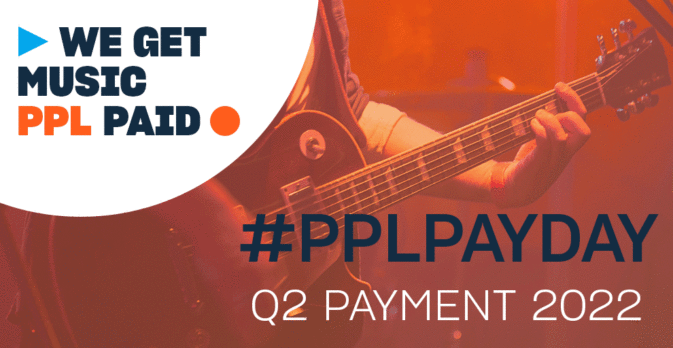PPL pays out £71.3 million to a record number of 113,271 performers and recording rightsholders in June distribution
PPL, the UK’s music licensing company for recorded music, today makes a payment of £71.3 million to 113,271 performers and recording rightsholders. This is the highest number of performers and recording rightsholders paid in a June distribution and follows PPL paying the highest ever number of performer and recording rightsholders in a calendar year.

Those being paid today include not just direct members of PPL but also performers and recording rightsholders represented in the UK via agreements the company has in place with 105 overseas CMOs.
PPL is the world’s leading international neighbouring rights company, collecting significantly more revenue than any other company or administrator. The record total of performers and recording rightsholders paid in this distribution reflects the important technological and operational investments made by the company. PPL has one of the most comprehensive repertoire databases in the world, holding detailed performer and recording rightsholder information on more than 20 million recordings and receiving on average 45,000 new track details each week. This supports PPL’s neighbouring rights experts in maximising the royalty revenue it collects and distributes.
PPL’s June distribution is made up of UK collections generated by the licensing of recorded music when broadcast and played in public, as well as international collections for those rights and others, such as private copy and cable retransmission. Also included in this distribution is £1.8 million from PPL’s sister company VPL which licenses music videos when they are played in public or broadcast on TV.
Peter Leathem, PPL Chief Executive Officer said:
“It is great to see PPL paying out money to more performers and recording rightsholders than ever before in a June distribution. It is another proof point that reinforces PPL’s leading position in the international neighbouring rights sector. We are able to collect and distribute royalties so effectively because of our expertise across a range of operational disciplines. Our leading data technology allows us to identify as much recording usage as possible as well as the performers and recording rightsholders to be paid, maximising royalty pay-through. We have a significant international network of 105 agreements with overseas collective management organisations, a network that encompasses Africa, Asia, Europe and North and South America. This helps us identify and claim overseas revenue for our members. And finally, our team of neighbouring rights experts use their deep understanding of the global neighbouring rights sector to maximise this revenue, ensuring performers and recording rightsholders are paid as fully as possible when their music is played.”



